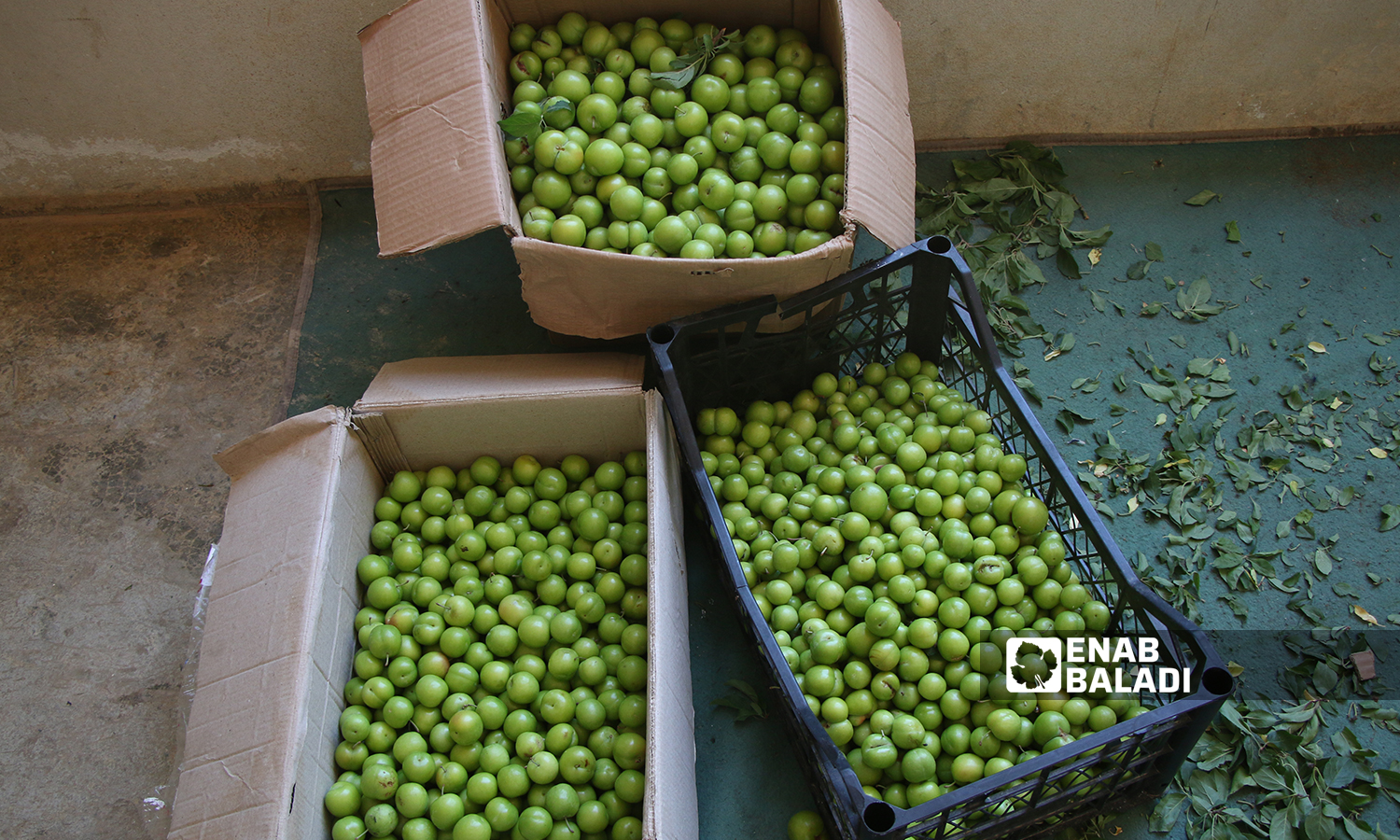



Enab Baladi – Darkush
Since the beginning of the current year, the cultivation of vegetables has spread in the countryside of the towns of Darkush and Salqin in particular, and the lands surrounding the Orontes River Basin in general in the western countryside of Idlib governorate. The damage that affected farmers’ main cropping seasons due to poor weather conditions and frost waves that hit the region last winter had ruined much of the crops and drove a trend towards growing vegetables.
Crops that survived cold waves were affected by insects and fungi, as climatic variations helped insects spread, reproduce, and grow abundantly.
Besides all the difficulties and challenges facing farmers, who can barely harvest part of their crops, the selling prices are very low compared to the production, picking, and packaging costs. The price of one kilo of vegetables reaches 15 Turkish liras for the excellent quality, which is a cheap price for opening the market, according to the views of several farmers met by Enab Baladi in the town.
This situation prompted farmers to plant large areas of their lands with vegetables, such as eggplants, peppers, cucumbers, zucchinis, and pumpkins.
The fertile land helped these varied crops to grow thanks to water availability from the Orontes River or shallow wells.
“After waiting a whole year for the agricultural season and borrowing money throughout the winter to pay debts, this season was characterized by poor yield results. Therefore, we had to grow our lands with seasonal crops and vegetables to compensate for the loss,” farmer Mohammad Nasser, 74, told Enab Baladi.
The majority of the Darkush town’s residents rely on cultivating fruitful trees as an income. This cultivation is divided into three main seasons, namely, stone fruits (green plums, peach, and apricot), walnuts, and pomegranates, and they do not engage in other professions.
“We face a lot of hardship even in growing vegetables; the costs outweigh the production, and the water, although abundant, needs machinery to be fetched from the river or wells,” farmer Yasser Dabil, 57, told Enab Baladi.
On 19 May, the Watad Petroleum Company, operating in the areas of the Syrian Salvation Government (SSG) in Idlib city and its countryside, raised fuel prices.
The price of a liter of high quality imported gasoline amounted to a dollar and 181 cents, while the price of a gas cylinder reached 13 dollars and 13 cents, according to Watad’s bulletin of fuel prices via Telegram.
The price of European diesel reached 935 US cents, the improved diesel 740 cents per liter, and the filtered diesel 550 cents. The company, on the other hand, justified the fuel price hike with a global rise in oil prices.
The increase in fuel prices in the SSG areas, despite being small, remains a burden for the region’s population due to poor living conditions.
“Fuel prices are very high. Currently, there are modern irrigation methods relying on solar energy that saves money after harvesting the yields, but it requires a large amount of money for installation, between 1000 and 2000 US dollars, which is a large amount for landowners,” farmer Mohammad Nasser told Enab Baladi.
The soaring fuel prices are an additional burden on farmers, who battle other financial expenditures divided between the costs of tilling, seeds, pesticides, and fertilizers. “It is a failing business, but we cannot leave our lands. We have planted and worked in lands since we were young, and even if we worked hard and paid money for no return, we will continue to work in our lands.”
According to a report by the REACH Initiative, the economic decline and continued military actions in Idlib and its countryside have exacerbated humanitarian needs.
Challenges related to obtaining fuel products were particularly present in the Greater Idlib area, as rising commodity prices and low wages contributed to the erosion of households’ purchasing power, resulting in increased food insecurity throughout the region.
if you think the article contain wrong information or you have additional details Send Correction